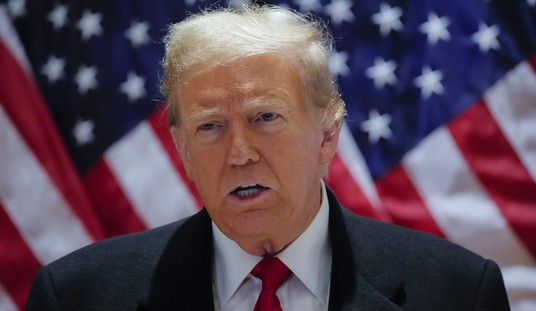
In this photo taken May 30, 2013, a U.S. flag is displayed on the Boeing 737 assembly line in Renton, Wash., above a nearly completed 737. (AP Photo/Ted S. Warren)
It’s never too early to prepare for a crisis, but Peter Mattis makes the seemingly impossible claim that “China could be on the brink of collapse.” Before we get to Mattis’s preparations, the original warning came from AEI’s Michael Auslin, whose WSJ column from January began with a warning from an unnamed source who is one of America’s premier China watchers. The warning? ““I can’t give you a date when it will fall, but China’s Communist Party has entered its endgame.”
Keep in mind that China has spent more of its history disunited than it has spent as a unitary state. Also keep in mind that Beijing has at least $3 trillion in the bank, which is enough to paper over a lot of differences — the end game for the Communist Party could likely be years and years away.
Here’s where Mattis starts:
The purpose of these tasks is to reduce the uncertainty faced by policy makers as a Chinese crisis emerges and cascades across the country, as well as to identify ways and decision points where Washington can influence the CCP’s choices. If an effort is not made to reduce the uncertainty, then fear of the unknown is likely to drive U.S. policy makers to a decision about whether to support the Chinese government out of ignorance, rather than informed calculation.
One of the first research-related steps is to identify the cohesive and centrifugal forces inside China. The CCP used its sixty-six years in power to dismember Chinese civil society and insert itself into any group with the potential to become a political force. Groups that could not be coopted, like Falungong, became pariah and hunted by the regime. Nascent civil-society and activist groups survive in the blind spots of China’s underlapping bureaucratic maze. Chinese political culture beyond the party needs to be understood if Washington wants to claim a “moral stake.”
That’s solid advice, reaching out to groups beyond Beijing with “Hey, we’re the good guys and we believe in your country.” It’s also exactly the kind of thing our State Department would almost certainly refuse to even consider, for fear of offending Beijing. Presidents Carter and Reagan took increasingly active roles in wooing Soviet dissidents — Carter because he’d been dealt such a weak hand, and Reagan because he was determined to put the USSR in “the ash heap of history.” But China is our frenemie, our sometimes “strategic partner,” our financier, and much of our manufacturing base. And so Washington craves stability there above all things. That attitude, that need for stability before anything else, won’t serve us well if and when the end comes for the Communist Party.
If a collapse should come, there is something we need to think about very seriously whether or not Washington ever heeds Mattis’s advice: The huge economic disruptions. China does in manufacturing today what America used to do, which is to move fast and scale up even faster. China moves workers and material in amounts and at speeds which are a legal and regulatory impossibility in 21st Century America. Between worker regs and the EPA, it simply isn’t possible for the US to replace China’s manufacturing ability — and there’s no other country besides us big enough and skilled enough to even try.
China’s collapse would cut a whole leg off of the global economy, with no anesthetic and no way to stop the bleeding. The loss of physical capital and manufacturing know-how would make a second Great Depression all but certain.
We need to have a plan in place to lift an awful lot of regulations, immediately, so that American business can go back to doing the kinds of things it used to do — and could do again if Big Fat Washington weren’t sitting on its chest.
In the early days of WWII, FDR asked for the impossible — that American industry build 50,000 warplanes in the first year, and 50,000 more every year after that. Nothing like it had ever been tried. But American business saw the profit potential, and FDR (for once) mostly got Washington out of the way. Sure enough, he got his airplanes.
We could do this, and avoid a global depression. The only thing stopping us is us.









Join the conversation as a VIP Member